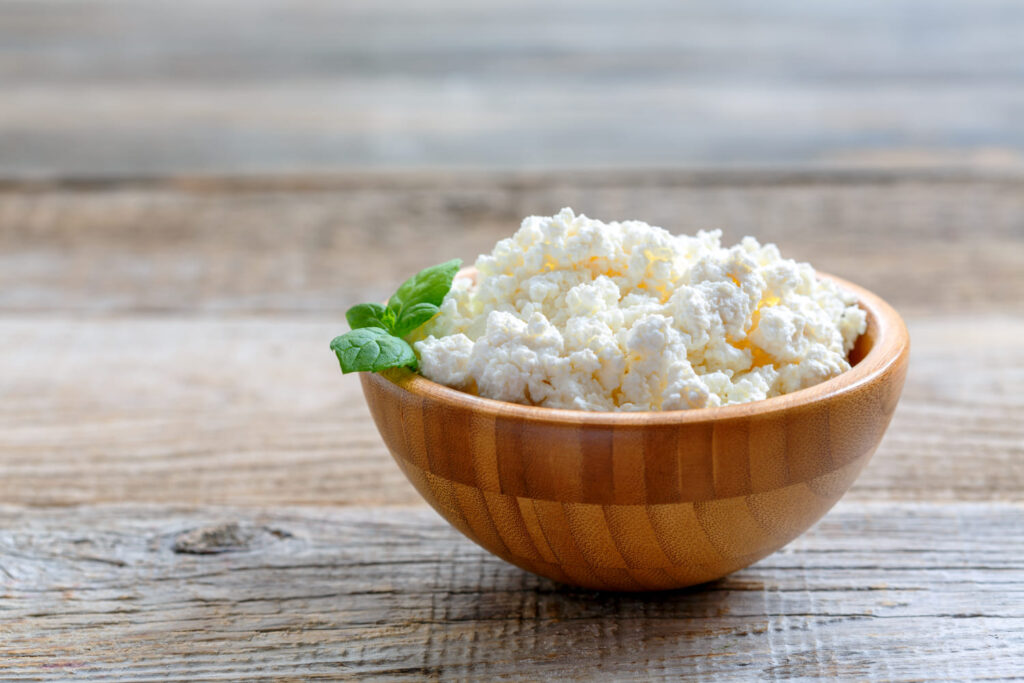
Ricotta is a fresh cheese product made of milk whey, generally of sheep or cows, with a soft and grainy consistency. As it is a perishable food, it is important to know how to store it correctly.
Adequate storage keeps the product’s nutritional and organoleptic properties intact which means that the food can be consumed safely. Here’s how long ricotta lasts in the refrigerator, including salted ricotta and ricotta in vacuum packaging.
How long does ricotta last?
First of all, let’s see for at how long fresh ricotta lasts in the refrigerator, for example ricotta sold unpacked and portioned. In this case, it can be stored for 2 or 3 days, but in some circumstances, if it is well packed, it could last longer, even up to 4 or 5 days.
In any case, you should always respect the expiry date indicated on the food product label. Storage times can be longer if the ricotta is vacuum-sealed in a protective atmosphere. How long does vacuum-sealed ricotta last? As long as it is kept sealed, it lasts from 2 up to 3 weeks, while once the packaging has been opened, it will last a maximum of 4 or 5 days.
Vacuum-sealed smoked or salted ricotta can last longer as the seasoning process reduces the product’s water content and extends its shelf life. With salted ricotta, for example, the product’s shelf life is less than 12 months, generally up to 3 to 4 months but it depends on the individual food and the storage methods.
How can you store ricotta?
To find out how to make ricotta last, you need to know how which is the most suitable storage method. Ricotta is usually kept in the refrigerator at a temperature of around 4°C. The packaging must be intact, but after opening, it needs to be properly closed properly or store in a container with a hermetic seal.
To prevent food waste, ricotta can also be frozen: first of all, it needs to be portioned, secondly put in a specific freezer-safe container and lastly labelled with the date of freezing. This process allows to store the ricotta from 1 up to 3 months; afterwards, it will start to lose its nutritional and organoleptic properties.
Now let’s see how to store salted ricotta, a product that must always be kept in the refrigerator, in its packaging or wrapped in baking paper, on the lowest shelf.
It is also important to pay attention when leaving it at room temperature, while eating for example, reducing as much as possible the time of exposure to high temperature.
How to store vacuum-sealed ricotta
Vacuum packing is a process that removes oxygen from inside of the packaging, extending the shelf life of food products. As previously said, vacuum-sealed ricotta lasts longer than fresh ricotta or conventionally packaged ricotta, even lasting from 2 up to 3 weeks, but it should be kept in the refrigerator at a temperature of 4 or 5°C.
Obviously, the packaging must always be intact so it provides an optimal barrier effect and prevents exposure to the air. Once opened, if the ricotta is not entirely consumed, it should be placed back in a suitable container and consumed within 2 or 3 days.
When ricotta has expired
When ricotta starts expiring, there are some signs that should not be underestimated if you want to prevent contamination and health risks. The most common signs that ricotta is no longer suitable for consumption are:
- Mold on the surface;
- Brown or black patches;
- Color changes since the time of purchase;
- An unpleasant odor, which is different from usual;
- An acidic taste.
In these cases, it means that the ricotta is expired and should not be consumed, otherwise it could cause stomach ache, diarrhea and vomiting.
Does your company produce ricotta and other dairy product derivatives? Then take a look at all the Volmar cheese packaging solutions to package your products effectively for large-scale sale.

